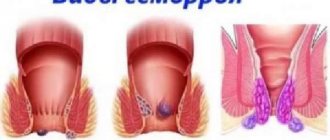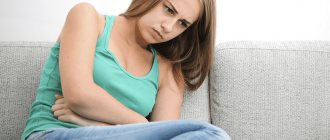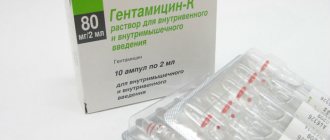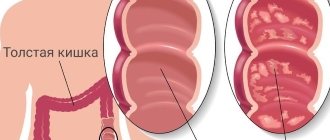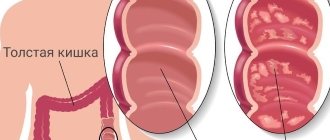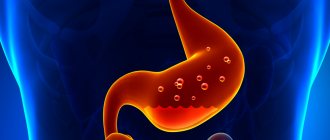More than 20% of people face the problem of hemorrhoids. This delicate disease in most cases makes people put off visiting the doctor again and again. A person simply tolerates its manifestations, although it can cause discomfort, the degree of which varies from minor to unbearable. This primarily concerns such a symptom as itching with hemorrhoids.
Translated from Greek, “hemorrhoids” means “bleeding.” And this is, indeed, the most common complaint of patients with this problem. But not the only one. Patients often complain of anal itching. But overcoming this symptom is not so easy.
Why does it itch?
Possible causes of anal itching include:
Hygiene habits
Sometimes the skin care procedure itself can irritate the skin. This sometimes happens if you wash too hard or, on the contrary, not enough, use soap with fragrances or antibacterial properties, wet wipes, scented toilet paper or paper with dyes.
Infections
Anal itching may be a symptom of a bacterial or fungal infection. It can be caused by viruses (herpes) and parasites (pinworms, which are more common in children).
Skin diseases
In some cases, itching may be caused by psoriasis or contact dermatitis.
Long-term constipation or chronic diarrhea
Long-term constipation or chronic diarrhea.
Eating certain foods and drinks
It is believed that coffee, tea, beer and cola, as well as chocolate, tomatoes and citrus fruits, can cause itching.
Treatment of anal itching
Methods for treating itching in the anus are selected by the doctor depending on the diseases detected. In most cases, therapeutic measures are aimed at eliminating them, since itching is a symptom. Predominantly drug therapy is used, and in some cases the use of radical measures is required - surgical or minimally invasive intervention.
Medicines
To eliminate the manifestations of anal itching, medications of different groups are used depending on the causes of the symptom:
- For hemorrhoids, anal fissures and other diseases of the rectum, local remedies are used - ointments or gels with anti-inflammatory and antipruritic effects.
- If the problem is of an allergic nature, antiallergic ointments with antihistamines will help cope with the obsessive symptom.
- Antibiotics in the form of tablets or injections are used for sexually transmitted infections and sexually transmitted diseases.
- Antifungal agents in the form of suppositories and tablets are used for candidiasis.
- Helminth infections and their symptoms are eliminated by taking special antiparasitic drugs. The drug is selected based on what type of worms were detected during the examination. It is recommended to take sorbents together with them to cleanse the body of toxins.
- If genital warts are detected on the anus, taking medications to strengthen the immune system and suppress the activity of the virus is indicated.
- If itching is caused by skin diseases, topical corticosteroids are prescribed.
To completely cure itching, additional remedies are prescribed: vitamin-mineral complexes, sedatives and stool stabilizing agents.
Important! You cannot select medications on your own and calculate the dosage and duration of therapy. This should be done by a highly specialized specialist after conducting a comprehensive examination of the patient.
Diet
Following a diet helps relieve itching around the anus. It is especially useful for proctological diseases and pathologies of the gastrointestinal tract, as well as for helminthiasis and dysbacteriosis.
First of all, you should exclude from the menu foods that irritate the intestinal mucosa and cause flatulence, diarrhea or constipation:
- dishes and foods high in fat, including oil sauces, lard, fried vegetables, fatty meats and fish;
- hot spices;
- marinades;
- salted vegetables, meat, fish;
- fruits, berries and greens with high acidity - citrus fruits, sorrel;
- chocolate and other cocoa products;
- some drinks - coffee, alcohol and black tea, soda and juices with flavors and sweeteners.
The basis of the diet is soups with vegetables and cereals in chicken or vegetable broth, stewed, boiled or baked vegetables, porridge in water or milk, steamed cutlets, stewed or baked meat (veal, chicken fillet, lamb), eggs (no more than 2 per day ), fresh fermented milk products.
Important point! For some diseases, you will have to stick to the diet for quite a long time - from several months to infinity. Any relaxation carries the risk of exacerbation of anal itching.
Folk remedies
The list of folk remedies that can theoretically be used for itching in the anus includes dozens of recipes, which can be divided into 2 groups:
- External - decoctions for baths with calendula, oak bark, chamomile and other herbs with a soothing, astringent and anti-inflammatory effect.
- For oral administration - decoctions and water infusions with oak bark, burdock roots or walnut leaves, linden blossom, yarrow and mint. Such teas and infusions eliminate intestinal disorders and normalize stool, which helps get rid of itching.
They should not be considered as independent medicines. Doctors recommend using them only as an addition to medication and diet therapy. Moreover, it is worth understanding that medicinal plants often cause allergies and can further aggravate unpleasant symptoms.
Important! It is strictly forbidden to treat itching in the anus in children with herbs and folk remedies.
other methods
If treatment with conservative methods does not improve the patient’s condition, the doctor decides on surgical or minimally invasive intervention. Such methods are used in the following cases:
- for hemorrhoids complicated by thrombosis of hemorrhoids;
- with heavy bleeding from the anus;
- when anal fissures become infected;
- with the formation of fistulas;
when large benign formations are detected in the rectum (polyps).
Both classical types of operations and low-traumatic procedures using cryodestruction, laser and radio wave “knives” and much more are used.
Since rectal diseases can be treated with these methods on an outpatient basis (many minimally invasive operations do not require hospitalization of the patient), they are becoming increasingly popular.
Itching in the anus should be treated with all available means, but only after consulting a doctor. For basic recommendations, see the video below.
When to go to the doctor
Most often, anal itching can be dealt with without seeing a doctor. However, you should not delay consultation if:
- The itching is constant and severe
- You have rectal bleeding
- There is inflammation and likely infection
- You can't figure out what exactly is causing the itching
For persistent anal itching, self-medication is not recommended. It is important that the doctor makes a diagnosis and prescribes appropriate treatment. Proper therapy and good hygiene habits help most people cope with itching.
It is better to go to a general practitioner, general practitioner or family doctor. Many people feel awkward, but doctors ask them not to worry or be embarrassed. Sometimes a doctor can diagnose the cause of itching simply by asking questions about symptoms and lifestyle choices. In some cases, additional research will be required. If the cause of the itching causes doubts to the doctor, he will refer you to a specialist involved in the diagnosis and treatment of diseases of the skin (dermatologist) or the rectum, colon, and perianal area (proctologist).
The appearance of inflammation
The appearance of inflammation is accompanied by swelling of the node, but this does not always happen. In some cases, this happens when nodes become pinched or fall out, which can be accompanied by copious amounts of blood. In this condition, complex therapy is carried out.
Inflammation creates persistent discomfort in the patient, which is expressed in the inability to sit for long periods of time, the appearance of sharp and severe pain when coughing, sneezing and any manifestation of tension.
Important note. Typically, the signs of external hemorrhoids located outside the intestine resemble the signs of internal hemorrhoids located inside the intestine. The main difference is that the development of the disease and the appearance of symptoms occurs outside the intestine and inside, respectively.
What will the doctor prescribe?
Treatment for anal itching depends on the cause of the problem. Typically, therapy involves changes in lifestyle and hygiene habits, and the use of over-the-counter creams and suppositories that protect the skin, relieve pain and itching, and speed up healing.
Your doctor may prescribe a topical medication that contains corticosteroids, such as hydrocortisone ointment. In most cases, it relieves itching, but sometimes, on the contrary, it worsens the symptoms. Do not use the product unsupervised for more than 7 days and be sure to tell your doctor if the itching intensifies. Your doctor may also prescribe antihistamines if the itching bothers you at night and prevents you from sleeping. Recommend laxatives or antidiarrheals.
Itching and burning in the anus in women
Anal itching and burning in women, in addition to causes characteristic of both sexes, can be caused by gynecological diseases: candidiasis, vaginitis, hormonal disorders while taking combined oral contraceptives, menopausal changes, atrophy of the vaginal mucosa, inflammation of the glands of the vestibule of the vagina, etc.
The presence of the above symptoms in women is often a consequence of pregnancy and childbirth due to the occurrence of postpartum hemorrhoids and anal fissures; is further complicated by the fact that intestinal motility in the “weaker” sex is less pronounced than in men, as a result of which women more often suffer from constipation and irregular bowel movements.
Make an appointment
Lifestyle
There are ways to get your itching under control that involve your lifestyle and self-care routine. The recommendations are quite simple, but sometimes they need to be followed for several months.
- The connection between diet and anal itching has not yet been studied well, but it is still better to avoid foods that are suspected of increasing symptoms.
- Eat foods high in fiber (dietary fiber) to prevent constipation. Ideally, the stool should be soft but well formed. Vegetables and fruits, legumes and whole grain flour products are suitable. For example, prunes, apples, bran bread, boiled lentils. The recommended amount of fiber is 20-35 grams per day. Product packaging often indicates how much fiber it contains.
- Use damp toilet paper and then gently blot with a dry cloth (do not rub). You can simply wet plain paper or use a hygienic shower or bidet.
- Avoid wearing tight-fitting clothing and choose cotton underwear to avoid friction. You can also use talc, petroleum jelly, or a zinc oxide barrier cream.
- Try not to scratch. This leads to inflammation. Be sure to cut your nails short. You can wear clean cotton gloves at night. Cold compresses (wet a piece of clean cloth in ice water, squeeze and apply) or a warm bath can help relieve itching.
Share:
Types of hemorrhoids
Hemorrhoids are a pathological expansion of the venous plexuses located in the lower parts of the rectum. This venous system is called hemorrhoidal, and it drains blood into the pelvic veins. When conditions are created that prevent normal venous outflow from it (constipation, sedentary lifestyle, pregnancy), the walls of the vessels overstretch and lose their tone. This leads to varicose hemorrhoidal veins.
Based on their location, hemorrhoids are divided into internal and external
Internal hemorrhoids are located above the external anal sphincter, and external hemorrhoids are located below it. There is also a combined form that combines external and internal nodes. With clear clinical symptoms, an acute inflammatory process in the hemorrhoids is diagnosed, and unexpressed symptoms indicate a chronic course of this pathology.
In addition, according to the degree of enlargement of the nodes, hemorrhoids are divided into four stages.
If left untreated, the disease can progress and cause complications.
A complicated course is diagnosed if:
- node infection;
- vein thrombosis;
- anal fissure;
- proctitis;
- paraproctitis;
- severe anal bleeding.
How to choose suppositories for hemorrhoids
Nowadays, pharmaceutical companies offer a huge selection of topical remedies to treat the delicate problem. Everyone can choose inexpensive and effective suppositories for hemorrhoids. Since all drugs differ in the active substance, and, as a result, in the mechanism of action, it is important that a specialist selects the drugs individually. The most effective treatment will be that prescribed after laboratory and instrumental studies, anamnesis and the current clinical picture.
Classification of candles:
- painkillers – reduce the severity of pain; may contain lidocaine, anesthesin, propolis;
- hemostatic - help stop bleeding from the hemorrhoid;
- disinfectants - contain antibacterial drugs that destroy pathogenic microorganisms;
- anti-inflammatory – relieve swelling of tissues, reduce the severity of pain;
- venotonic – strengthen the walls of blood vessels and prevent their fragility; this allows you to reduce hemorrhoids in size and subsequently prevent bleeding;
- healing – have a regenerating and healing effect; also used for the appearance of anal fissures;
- combined are drugs that have several actions (painkiller, anti-inflammatory and healing).
To the point
Not only suppositories: what tablets are used in the treatment of hemorrhoids

